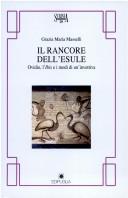| Listing 1 - 10 of 15 | << page >> |
Sort by
|
Book
ISBN: 9783447057899 3447057890 Year: 2008 Volume: Bd. 74 Publisher: Wiesbaden : Harrassowitz,
Abstract | Keywords | Export | Availability | Bookmark
 Loading...
Loading...Choose an application
- Reference Manager
- EndNote
- RefWorks (Direct export to RefWorks)
Egyptian language --- Enemies --- Egyptien (Langue) --- Ennemis --- Etymology. --- Etymologie --- Ägyptisch. --- Ägyptisch. --- Adversaries --- Antagonists --- Enemies (Persons) --- Foes --- Opponents --- Hostility (Psychology) --- Etymology
Book
ISBN: 3402194902 9783402194904 9783402128718 3402128713 Year: 2012 Publisher: Münster : Aschendorff Verlag,
Abstract | Keywords | Export | Availability | Bookmark
 Loading...
Loading...Choose an application
- Reference Manager
- EndNote
- RefWorks (Direct export to RefWorks)
Enemies --- Religion --- Philosophy & Religion --- Religion - General --- Adversaries --- Antagonists --- Enemies (Persons) --- Foes --- Opponents --- Hostility (Psychology) --- Religious aspects. --- Political aspects. --- Social aspects. --- History. --- Religious aspects --- Political aspects --- Social aspects

ISBN: 9780804748247 0804748241 0804748233 Year: 2003 Publisher: Stanford, Calif. : Stanford University Press,
Abstract | Keywords | Export | Availability | Bookmark
 Loading...
Loading...Choose an application
- Reference Manager
- EndNote
- RefWorks (Direct export to RefWorks)
Christianity and antisemitism --- Christianity and other religions --- Enemies --- Christianisme et antisémitisme --- Christianisme --- Ennemis --- History --- Islam. --- Histoire --- Relations --- Islam --- History. --- Christianisme et antisémitisme --- Adversaries --- Antagonists --- Enemies (Persons) --- Foes --- Opponents --- Antisemitism and Christianity --- Hostility (Psychology) --- Judaism
Book
ISBN: 3777614157 9783777614151 Year: 2005 Volume: 78/5 Publisher: Stuttgart: Hirzel,
Abstract | Keywords | Export | Availability | Bookmark
 Loading...
Loading...Choose an application
- Reference Manager
- EndNote
- RefWorks (Direct export to RefWorks)
Enemies (Persons) in literature --- Egyptian literature --- Criticism and interpretation --- Egyptian language --- Enemies --- Hostility (Psychology) --- Enmity --- Hostile behavior --- Psychology --- Adversaries --- Antagonists --- Enemies (Persons) --- Foes --- Opponents --- Afroasiatic languages --- Texts --- Enemies (Persons) in literature - Congresses. --- Egyptian literature - Criticism and interpretation - Congresses.
Book
ISBN: 0199987394 0199987386 9780199987382 1306315883 9781306315883 9780199987375 0199987378 9780199987399 Year: 2014 Publisher: Oxford, [England] ; New York, [New York] : Oxford University Press,
Abstract | Keywords | Export | Availability | Bookmark
 Loading...
Loading...Choose an application
- Reference Manager
- EndNote
- RefWorks (Direct export to RefWorks)
More than two thousand years ago the Chinese strategist Sun Tzu advised us to know our enemies. The question has always been how. In A Sense of the Enemy, the historian Zachary Shore demonstrates that leaders can best understand an opponent not simply from his pattern of past behavior, but from his behavior at pattern breaks. Meaningful pattern breaks occur during dramatic deviations from the routine, when the enemy imposes costs upon himself. It's at these unexpected moments, Shore explains, that successful leaders can learn what makes their rivals truly tick. Shore presents a uniquely reveal
Political leadership --- Heads of state --- Enemies --- Psychology, Military. --- Military psychology --- Psychology, Applied --- Sociology, Military --- Military morale --- Operational psychology --- Adversaries --- Antagonists --- Enemies (Persons) --- Foes --- Opponents --- Hostility (Psychology) --- Heads of government --- Rulers --- State, Heads of --- Executive power --- Statesmen --- Leadership --- Psychological aspects. --- Psychology.
Book
ISBN: 1949013081 9781949013085 9781949013061 Year: 2018 Publisher: Emmaus Road Publishing
Abstract | Keywords | Export | Availability | Bookmark
 Loading...
Loading...Choose an application
- Reference Manager
- EndNote
- RefWorks (Direct export to RefWorks)
Church history --- Enemies --- Religious aspects --- Christianity --- Adversaries --- Antagonists --- Enemies (Persons) --- Foes --- Opponents --- Hostility (Psychology) --- Apostolic Church --- Church, Apostolic --- Early Christianity --- Early church --- Primitive and early church --- Primitive Christianity --- Fathers of the church --- Great Apostasy (Mormon doctrine)

ISBN: 8872283418 9788872283417 Year: 2002 Publisher: Bari Edipuglia
Abstract | Keywords | Export | Availability | Bookmark
 Loading...
Loading...Choose an application
- Reference Manager
- EndNote
- RefWorks (Direct export to RefWorks)
Blessing and cursing in literature. --- Enemies in literature. --- Blessing and cursing --- Enemies --- Blessing and cursing. --- Enemies. --- Invektive. --- Ovid, --- Ovidius Naso, Publius. --- Ibis (Ovid). --- Blessing and cursing in literature --- Enemies in literature --- Adversaries --- Antagonists --- Enemies (Persons) --- Foes --- Opponents --- Hostility (Psychology) --- Cursing and blessing --- Execration --- Imprecation --- Malediction --- Incantations

ISBN: 020395968X 113550251X 1135502447 041597626X 0415867266 Year: 2005 Publisher: London, [England] ; New York : Routledge,
Abstract | Keywords | Export | Availability | Bookmark
 Loading...
Loading...Choose an application
- Reference Manager
- EndNote
- RefWorks (Direct export to RefWorks)
First Published in 2006. Routledge is an imprint of Taylor & Francis, an informa company.
English fiction --- Communication in literature. --- Books and reading --- History and criticism. --- History --- Appraisal of books --- Books --- Choice of books --- Evaluation of literature --- Literature --- Reading, Choice of --- Reading and books --- Reading habits --- Reading public --- Reading --- Reading interests --- Reading promotion --- Appraisal --- Evaluation --- pilgrims --- progress --- swifts --- narrator --- celestial --- city --- pilgrim --- foes --- defoes --- journal
Book
ISBN: 9780231182447 9780231182454 9780231544177 0231544170 0231182449 0231182457 Year: 2019 Publisher: New York, NY : Columbia University Press,
Abstract | Keywords | Export | Availability | Bookmark
 Loading...
Loading...Choose an application
- Reference Manager
- EndNote
- RefWorks (Direct export to RefWorks)
Despite the strong influence of just war theory in military law and practice, warfare is commonly considered devoid of morality. Yet even in the most horrific of human activities, there is frequent communication and cooperation between enemies. One remarkable example is the Christmas truce-unofficial ceasefires between German and English trenches in December 1914 in which soldiers even mingled in No Man's Land.In Conspiring with the Enemy, Yvonne Chiu offers a new understanding of why and how enemies work together to constrain violence in warfare. Chiu argues that what she calls an ethic of cooperation is found in modern warfare to such an extent that it is often taken for granted. The importance of cooperation becomes especially clear when wartime ethics reach a gray area: To whom should the laws of war apply? Who qualifies as a combatant? Should guerrillas or terrorists receive protections? Fundamentally, Chiu shows, the norms of war rely on consensus on the existence and content of the laws of war. In a wide-ranging consideration of pivotal instances of cooperation, Chiu examines weapons bans, treatment of prisoners of war, and the Geneva Conventions, as well as the tensions between the ethic of cooperation and the pillars of just war theory. An original exploration of a crucial but overlooked phenomenon, Conspiring with the Enemy is a significant contribution to military ethics and political philosophy.
Political philosophy. Social philosophy --- Polemology --- General ethics --- Enemies. --- Conflict management --- Cooperation --- Military ethics --- War --- War (International law) --- Violence --- Violent behavior --- Social psychology --- Hostilities --- International law --- Neutrality --- War and morals --- Ethics --- Adversaries --- Antagonists --- Enemies (Persons) --- Foes --- Opponents --- Hostility (Psychology) --- International cooperation. --- History. --- Moral and ethical aspects. --- Prevention
Book
ISBN: 0830897690 9780830897698 9780830844227 0830844228 Year: 2015 Publisher: Westmont : InterVarsity Press,
Abstract | Keywords | Export | Availability | Bookmark
 Loading...
Loading...Choose an application
- Reference Manager
- EndNote
- RefWorks (Direct export to RefWorks)
Sociologist George Yancey unpacks the underlying perspectives and root causes of ""Christianophobia,"" or intense anti-Christian hostility. He considers to what extent Christians have themselves contributed to this animosity and explores how we can respond more constructively, defusing tensions and working toward the common good.
Christianity -- Public opinion. --- Enemies -- Religious aspects -- Christianity. --- Hostility (Psychology). --- Persecution. --- Religious discrimination. --- Persecution --- Christianity --- Enemies --- Hostility (Psychology) --- Religious discrimination --- Religion --- Philosophy & Religion --- Discrimination --- Enmity --- Hostile behavior --- Psychology --- Adversaries --- Antagonists --- Enemies (Persons) --- Foes --- Opponents --- Religions --- Church history --- Christians --- Religious persecution --- Atrocities --- Public opinion --- Religious aspects --- Persecutions --- Enemies. --- Public opinion. --- Religious aspects.
| Listing 1 - 10 of 15 | << page >> |
Sort by
|

 Search
Search Feedback
Feedback About UniCat
About UniCat  Help
Help News
News